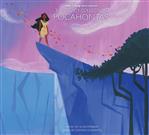|
|
||||
|
by Richard Jack Smith  Below are more soundtrack reviews of recent and archival releases. The 7 Magnificent Gladiators (Dov Seltzer, 1983) **** The pleasant tone guiding The 7 Magnificent Gladiators took me by surprise. Such melodic richness echoes the deep affection composer Dov Seltzer had for this material. It might seem a little Jane Austen at times, yet that proves favourable. Meanwhile, Seltzer dances on light, sweet air careful about contrast and allowing drama to percolate with an emotional pace. Quite simply, The 7 Magnificent Gladiators delivers the most charming symphonic experience in a long time. Enter the Dragon (Lalo Schifrin, 1973) ** Would I endanger myself by condemning Lalo Schifrin’s Enter the Dragon? Might the spectre of Bruce Lee linger nearby, ready to deliver a punch? The latter might seem dubious depending on belief in the supernatural. As for the music being overhyped, I stand firmly. Also, lonely inspirations from Schifrin’s soundtrack include: the propulsive “Main Titles” and the psychedelic variation underpinning Lee’s loss and pain. A jazz man at heart, Schifrin sits comfortably in a night club. On many films, he composes for visible players and this creates a different ambience to his traditional underscore. Mostly, Enter the Dragon entertains via a laid back groove. However, the less than enthusiastic rating reflects my desire not to have this music in my collection. Fellini’s Casanova (Nino Rota, 1976) **** In the process of discovery, known labels or genres don’t apply. Regarding Fellini’s Casanova, we encounter a bizarre spectrum. It’s the sensation we experience when confronted by something enticing, yet alien. All accessible emotions such as fear and love end up dislocated. As such, the instrumental creativity felt lucid. Only time may indicate the bottom line. Yet Nino Rota’s adherence to abstract human expressions made it bold. A poem: Nature’s light once dimming Dance the mood in a foreign crystal The joy in conception Casanova lost and spun Flamingo Road (Max Steiner, 1949) **** Only a poem: Quality and appeal Flamingo Road made me believe The Great Alligator (Stelvio Cipriani, 1979) * Another poem: The feeling was camp Subject might seem lugubrious The Great Alligator lost a tooth Harry in Your Pocket (Lalo Schifrin, 1973) ** Donning a melancholy hat, Harry In Your Pocket proves insufferable as “Prelude,” “Day by Day by Day” and “Everything Gone” abandon hope. Expecting more downbeat tunes, I was rather taken with “Penthouse Source.” It’s a jittery old thing, unsure whether to sprint or lag. Although some harmonic ideas resonate, a return would be unnecessary. Time to rhyme: Harry in Your Pocket A couple of nice pieces The Incredible Hulk (Craig Armstrong, 2008) **** If it were simply invigorating chase music and a cool theme, enthusiasm would remain neutral. So what distinguishes Craig Armstrong’s The Incredible Hulk? Personality. Consider “The Necklace” which rests upon the heart as a gentle, warming presence. Adding to which, contrast serves the story by allowing musical ideas to build, fall away, regroup, emphasize interpersonal relationships and carve a legacy. Meanwhile, the three note Hulk Theme proves distinctive and portentous, capturing the darkness of the character while never losing sight of his heroic nature. This represents a world building opportunity which Armstrong seizes with iron teeth. More great moments await, including “Abomination Alley.” Nearby, “Sterns’ Lab” just might be the greatest track here. Elevating the emotional stakes, such thematic growth sent goosebumps through me. Finally, a generous two CD presentation allows listeners a fuller exploration of the musical architecture. Not content with formula, he causes rhythm and heart to evoke a fresh heroic spin. You will like this score even when the Hulk gets angry. Red Joan (George Fenton, 2019) *** The investigative quality behind George Fenton’s Red Joan means a solitary listen won’t be enough. This mercurial lifeforce segues into electronics for “The University” to less than winning effect. When manipulating strings, woodwinds or piano, Fenton finds the colours to match his vision. Dare I say a breath of sophistication proves simultaneously character driven and germane to the plot. Such a tone poem might dissuade the unwilling. However, for others it’s deep, compelling stuff. Definitely the thinking person’s score of 2019. Wolf (Ennio Morricone, 1994) * To the naked eye, Wolf felt like an island lost inside the greater map of Ennio Morricone's achievements. Many moons ago (wink!) criticism was levelled against the composer for tarnishing otherwise decent orchestrations. The problem stemmed from the harpsichord. Personally, the first half of Wolf came out unscathed, the instrument novel in spirit. However, random appearances during the later stages seem unmotivated. For "Laura and Will," woodwinds end up scorned by the interruption. Meanwhile, Morricone bottled an ambitious project by submitting to his cyclical nature. The key motifs rarely settle where the heart can carry them. As such, we wonder where the magic has gone. I craved atmospheric ideas which describe Jack Nicholson's dual personality. Any scent got washed away as the composer's imagination couldn't keep up with the full moon. SCORE OF THE MOMENT Pocahontas (Alan Menken and Stephen Schwartz, 1995) ***** A score with magical and transcendent qualities, Pocahontas could be my favourite thing from Alan Menken. On this occasion, he collaborated with lyricist Stephen Schwartz. Both songs and underscore convey a seamless partnership. Elsewhere, contrast gives weight to the happier measures. In terms of dramatic composition, thoughts go beyond Disney. Above all, I am honoured to include Pocahontas as the first Score of the Moment for the year 1995. Overall, the themes offer a haunting, romantic, valiant and sharp appraisal of the human response. |
||
|
© 2026 - ReelTalk Movie Reviews Website designed by Dot Pitch Studios, LLC |



